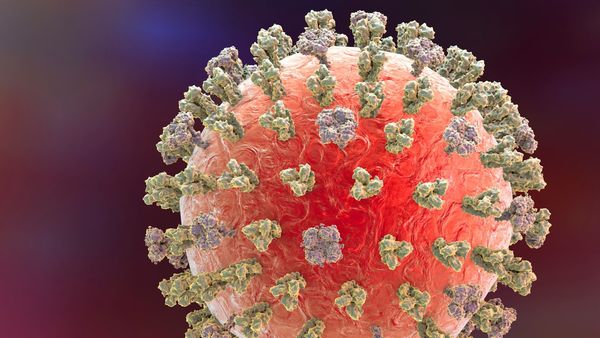
Buenos Aires (AFP) - When migration officials detained six pregnant Russian women at a Buenos Aires airport last week, they exposed a phenomenon that has been growing in the country for a year: Russian birthing tourism.
As Russia's President Vladimir Putin wages war in Ukraine, Argentina has gradually become the destination of choice for Russian expectant parents fleeing the threat of conscription and seeking new passports in the South American country.
Pregnant Russian women and couples with a newborn baby have become increasingly visible in Buenos Aires over the last year, whether in cafes, parks, or buses, but especially in private clinics.
The case of the six detained women sent alarm bells ringing at the Directorate of Migrations, worried that something underhand was afoot.
The six heavily-pregnant women -- who traveled separately and were detained for only a few hours over two days -- had tourist visas but no return tickets and were unable to give any details about what they planned to visit.
Authorities were worried criminal gangs were involved but in truth, the Russians just wanted to give birth in the country.
Argentina's quality medical facilities and the ease with which nationality is obtained are part of the draw.
'I want my son to live'
But many are driven by fear that one day their children could be conscripted into the army and sent to wage a bloody war, like Putin is doing in Ukraine with the current generation.
"Some 90 percent of the women who come are looking for a better future," interpreter Elena Shkitenkova, who has lived in Argentina for 20 years and helps expectant mothers in their administrative processes, told AFP.
"There have been cases of women that when they have discovered they are expecting a boy, they decided to come to Argentina."
The South American country bestows nationality on anyone born in Argentina, meaning those Russian boys born here would be able to avoid any eventual conscription when they become men.
"They tell me: 'I want my son to live, I want peace for my son, I want a better future'," added Shkitenkova.
The parents too are desperate to escape the war.
"The war in Ukraine influenced our decision to come to Argentina, although that was not the only reason," Elena, 32, a mother of three girls who did not give her surname, told AFP.
"It is certain that if we had stayed in Russia, my husband probably would have been conscripted," she added.
The parents of Argentine babies are afforded residency rights and an accelerated process to apply for citizenship.
Elena's youngest daughter, Severina, was born in Buenos Aires in May.
"We want to stay here and assimilate.Our residency application is in progress," she said.
At the Sanatorio Finochietto clinic, there is a noticeable presence of Russian families and pregnant women.
Guillermo Capuya, who is in charge of the clinic's institutional relations, says the arrival of pregnant Russians "began very slowly" about a year ago, around the start of Russia's invasion of Ukraine.
"We did not imagine it would become a phenomenon, but in the last quarter it started to increase exponentially" to the point that in December a quarter of the 200 births in the clinic were to Russian mothers.
'It's an avalanche'
Most of the Russians do not speak Spanish and almost none have ever visited Argentina before.
But what is happening now "is an avalanche," said Florencia Carignano, the migration agency director.
They mostly arrive on flights from Amsterdam, Istanbul and Addis Ababa.
Carignano says there are 14 or 15 pregnant Russians on each of those flights.
More than 5,800 have arrived in the last three months.
There is nothing new about Russians seeking dual nationality for their children, a man who created an agency to help expectant parents in Argentina told AFP under condition of anonymity.
Before, the preferred destination was the United States.
The "package" deal for giving birth in Argentina can cost up to $15,000, he said.
"If you have a bit of money and are able to have your child born outside Russia, you will do it.It's easy to acquire Argentine citizenship and you get treated a lot better than with the red Russian passport," he said.
According to the federal police, some networks charge up to $35,000 for birthing tourism.
Authorities are worried mafia organizations could be trying to get access to Argentine passports.
Police conducted a raid in Buenos Aires last week, seizing telephones, documents and several currencies, although no arrests were made.
The Argentine passport allows you to travel to 175 countries without a visa, around 50 more than with a Russian passport.







